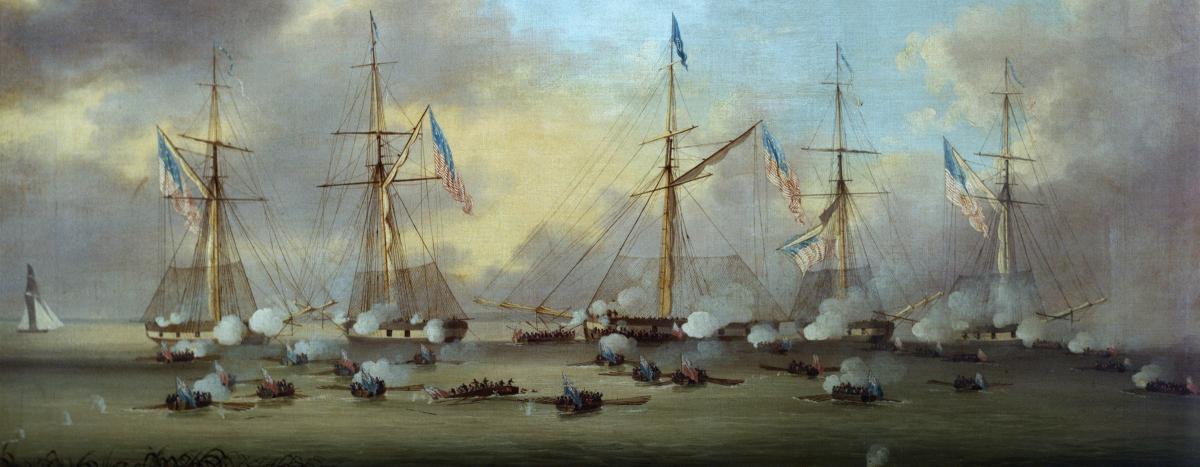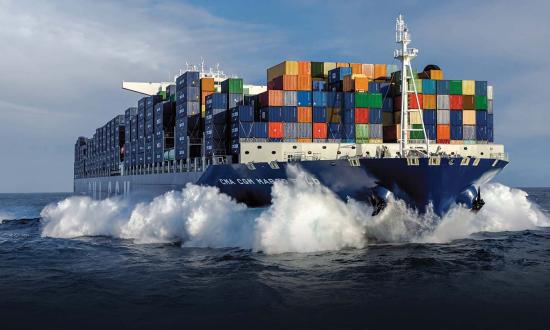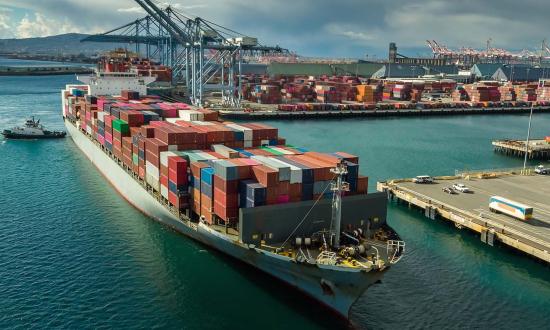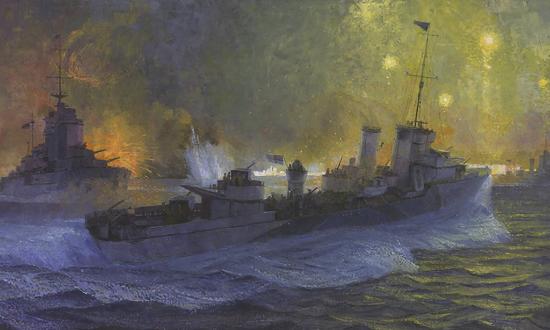American Naval Dominance Is Not a Birthright
Commander Armstrong makes several references to Alexander Hamilton, specifically his writings in Federalist Paper No. 11, regarding naval power for the new nation. However, no mention is made of another founding father who was an even greater advocate, over a longer period of time, for a strong naval force for the new United States: John Adams.
As a Massachusetts representative to the Continental Congress, vice president under George Washington, and second president of the United States, Adams was, as David McCullough writes, “the greatest advocate of the navy of any American statesman of his generation.” In his last speech as president on November 22, 1800, Adams “praised the navy and recommended further measures for a defensive naval force,” McCullough says. Finally, in retirement, Adams wrote to his son Thomas: “Everything I read only serves to confirm me in the opinion of the absolute necessity of our keeping aloof from all European powers and influences, and that a navy is the only arm by which it can be accomplished.” If any of the founders can be credited as father of the United States Navy, surely it is John Adams.
—CAPT David W. Jacobs, USNR (Ret.)
The United States is a Sea Power
We were warned about entanglements on the Eurasian landmass. The United States is a sea power. We forget that it was really Russian land power that defeated Hitler. The U.S. strength is in the Taiwan Straits, not the hills of Afghanistan.
When I taught in the overseas military, I used the analogy of the American Revolution. Britain was fighting on a far-off continent. The British controlled the seas and could deploy overwhelming force at any point they chose. They held every major city at some point in the war. Cornwallis’s campaign shows it best. He started at Charleston and marched through the South winning battle after battle. As soon as he passed, the colonists simply moved back in. He ended up in Yorktown, and all he actually accomplished was to move his army farther up the coast. Let’s recognize that the United States is a sea power and exploit our strengths
—David A. Laster, USNR (Ret.)
What’s at Stake in the Indo-Pacific
The core question, which U.S. Sea Power has yet to address, is whether China is an existential threat to the United States. If it is, then continuing to run an annual trade deficit with a country dedicated to destroying America is sheer madness. However, if China is not an existential threat, then discussions of war with China are manufactured hysterics to feed the profits of the military-industrial complex.
The Chinese are aware that the best way to reunify a currently divided, fractious American public would be to initiate hostilities. They have observed a NATO Article 5 response to the terrorist attacks of 9/11, and have no intention of bringing Europe into a conflict on the side of America. If it comes to war, the Chinese will maneuver the Americans into firing the first shot—just as the United States did with the Japanese in 1941. Imagine the American public reaction if a precision conventional attack were launched on Naval Base San Diego. An attack on the mainland territory of the People’s Republic of China is a guaranteed escalation into a wider war.
In terms of naval construction, America is exactly the same position as was Japan before December 1941. Depending on whose numbers are used, Chinese shipyards can outbuild the United States, ton for ton, 35 to 100 times. An extended war with China would produce huge fleets in the Pacific—they just would not be American.
The United States would have to depend on superior technology to defeat China—but the U.S. edge has been slipping. In the past, depending on wonder weapons did not work out that well for the Germans.
If the United States and China should come to blows over Taiwan, People’s Liberation Army Navy sailors will fight to reunify their country. What will U.S. sailors be fighting for?
To win in the long term, the Chinese literally need to do nothing. The current global economic system has restored China to its position as the workshop for the world, while America continues to shed manufacturing. The United States can no longer, by itself, make enough to clothe its people and control the global ocean. The nation would need to build a coalition willing to contain and possibly go to war with China. Is the American public, and for that matter the entire Western world, willing to accept a lower standard of living in order to do this?
—Guy Wroble






